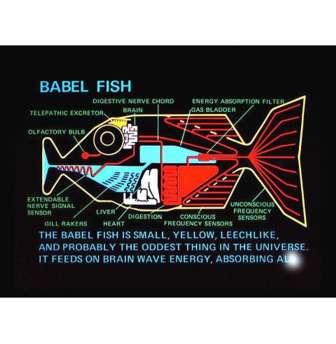| Neural Networks Applied To Machine Translation |
| Written by Sue Gee | |||
| Thursday, 17 November 2016 | |||
|
Both Microsoft and Google have announced significant improvements to their interactive translation tool thanks to neural networks.
The Microsoft Translator team has announced that it is powering all its speech translation, for Skype and mobile devices, through neural networks. The blog post states: In addition to the nine languages supported by the Microsoft Translator speech API, namely Arabic, Chinese Mandarin, English, French, German, Italian, Brazilian Portuguese, Russian and Spanish, neural networks also power Japanese text translations. These ten languages together represent more than 80% of the translations performed daily by Microsoft Translator. To see the level of improvement you can expect, there is a Try & Compare feature on the Microsoft Translator website where you can see the outcome of the old and new methods of translation - statistical and neural. For the supplied phrases Neural does seem to perform better:
However, when I typed in some promotional material from a Spanish supermarket "Elegir a la carta una buena hamburguesa" I was shown an accurate translation "Choose a good hamburger á la carte" and one that missed the point entirely: "Choose a letter a good hamburger". I was initially surprised to discover that the former was the old Statistical approach but then as Statistical is influenced by the frequency of being asked to translate menus and restaurant reviews. However, the example is probably an anomaly and I'm not going to argue with Microsoft's opinion that the use of neural networks is producing superior translations. The blog post presents this graph used to promote the idea that we can expect future improvements.
On the same day as the Microsoft blog post, Barak Turovsky, Product Lead for Google Translate also made an announcement about putting Neural Machine Translation into action with an update to Google Translate: Introducing this roll out, Turovsky writes: Neural Machine Translation has been generating exciting research results for a few years and in September, our researchers announced Google's version of this technique. At a high level, the Neural system translates whole sentences at a time, rather than just piece by piece. It uses this broader context to help it figure out the most relevant translation, which it then rearranges and adjusts to be more like a human speaking with proper grammar. Since it’s easier to understand each sentence, translated paragraphs and articles are a lot smoother and easier to read. And this is all possible because of end-to-end learning system built on Neural Machine Translation, which basically means that the system learns over time to create better, more natural translations. Google Translate is using Neural Machine Translation with eight language pairs: to and from English and French, German, Spanish, Portuguese, Chinese, Japanese, Korean and Turkish. According to Google these languages are the native languages of around one-third of the world's population - however if you take into account people who speak them as second languages or have a good grasp of them the proportion of the mobile device and website users is significantly higher, likely to be the vast majority. Machine translation does seem to be close to being the babel fish of Douglas Adam's vision. Building translation devices into a wearable with an ear piece is the next challenge. More InformationMicrosoft Translator launching Neural Network based translations for all its speech languages Found in translation: More accurate, fluent sentences in Google Translate A Neural Network for Machine Translation, at Production Scale Related ArticlesMIcrosoft's Project Oxford AI APIs For The REST Of Us Google Translate - Breaking Down Babel Skype Translator Cracks Language Barrier Windows Phone Translation-As-You-Go Microsoft Cognitive Toolkit Version 2.0 Beta How Will AI Transform Life By 2030? Initial Report To be informed about new articles on I Programmer, sign up for our weekly newsletter,subscribe to the RSS feed and follow us on, Twitter, Facebook, Google+ or Linkedin.
Comments
or email your comment to: comments@i-programmer.info |
|||
| Last Updated ( Thursday, 17 November 2016 ) |






